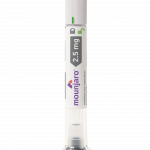
Elevated levels of thyroid hormone appear to harm the aging brain, increasing seniors’ risk of dementia or other cognitive disorders, a new study finds. High levels of thyroid hormone — a condition called thyrotoxicosis — was associated with thinking problems whether they came from an overactive thyroid gland or from taking thyroid medication, researchers found. “Our results suggest that an increased risk of cognitive disorders is among the potential negative consequences of thyroid hormone excess, a common consequence of thyroid hormone therapy,” said senior researcher Dr. Jennifer Mammen, an assistant professor of medicine at Johns Hopkins University School of Medicine in Baltimore. “Clinicians considering thyroid hormone therapy in older adults should avoid over-treatment by using age-appropriate treatment strategies,” Mammen added in a university news release. Some prior studies have suggested that high thyroid levels were associated with an increased risk of cognitive disorder, but those results have been mixed, researchers said. Additionally, those earlier studies didn’t include excess thyroid hormone caused by taking medication. Thyroid hormone is among the most common prescriptions in the United States, researchers said. As many as 20% of people prescribed thyroid hormone might be taking too much, putting them at risk for thyrotoxicosis. “Our goal was to investigate whether aggressive treatment practices … can also possibly cause cognitive harm,” said lead researcher Roy Adams, an assistant professor of psychiatry and… read on > read on >


















